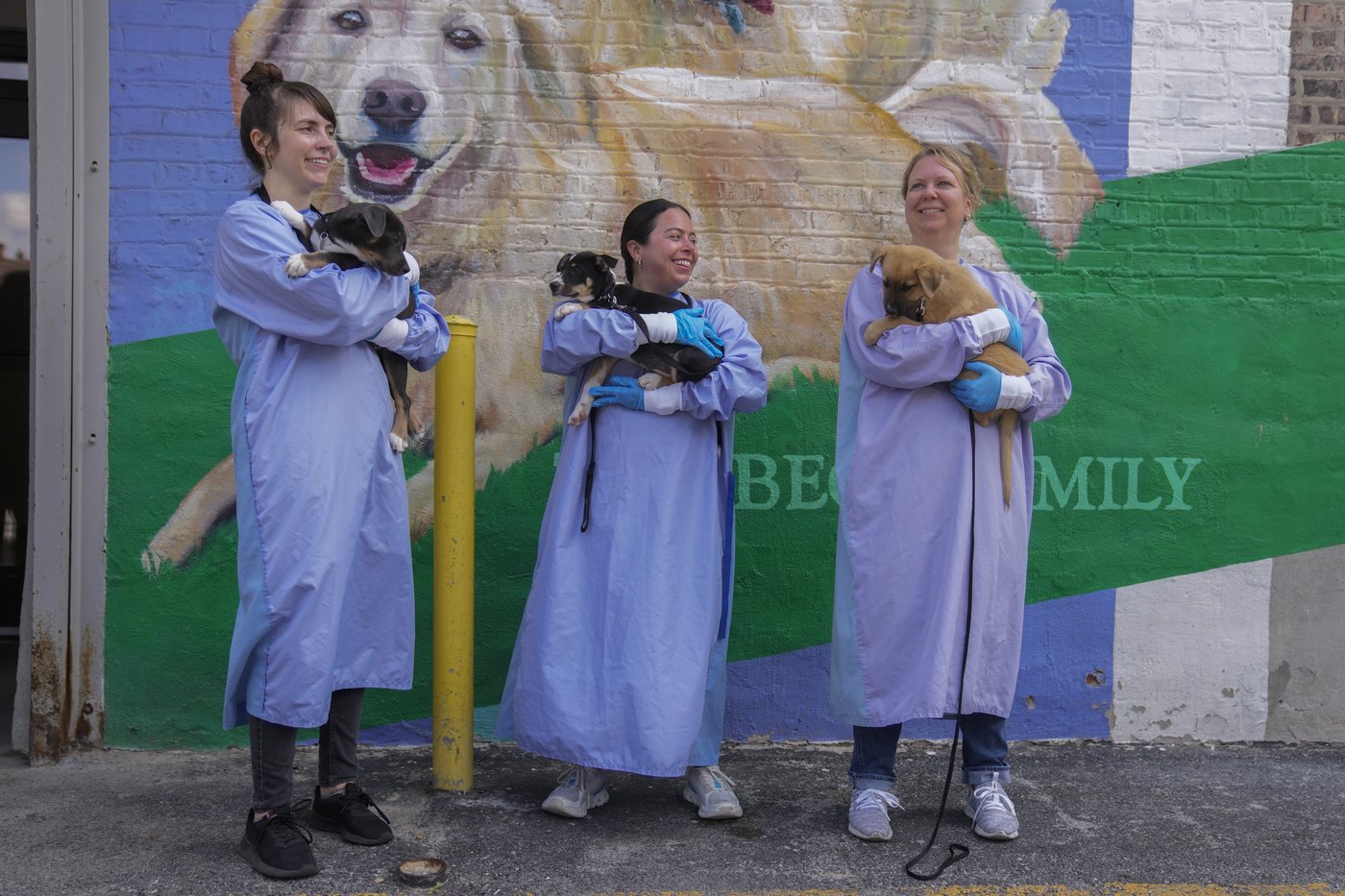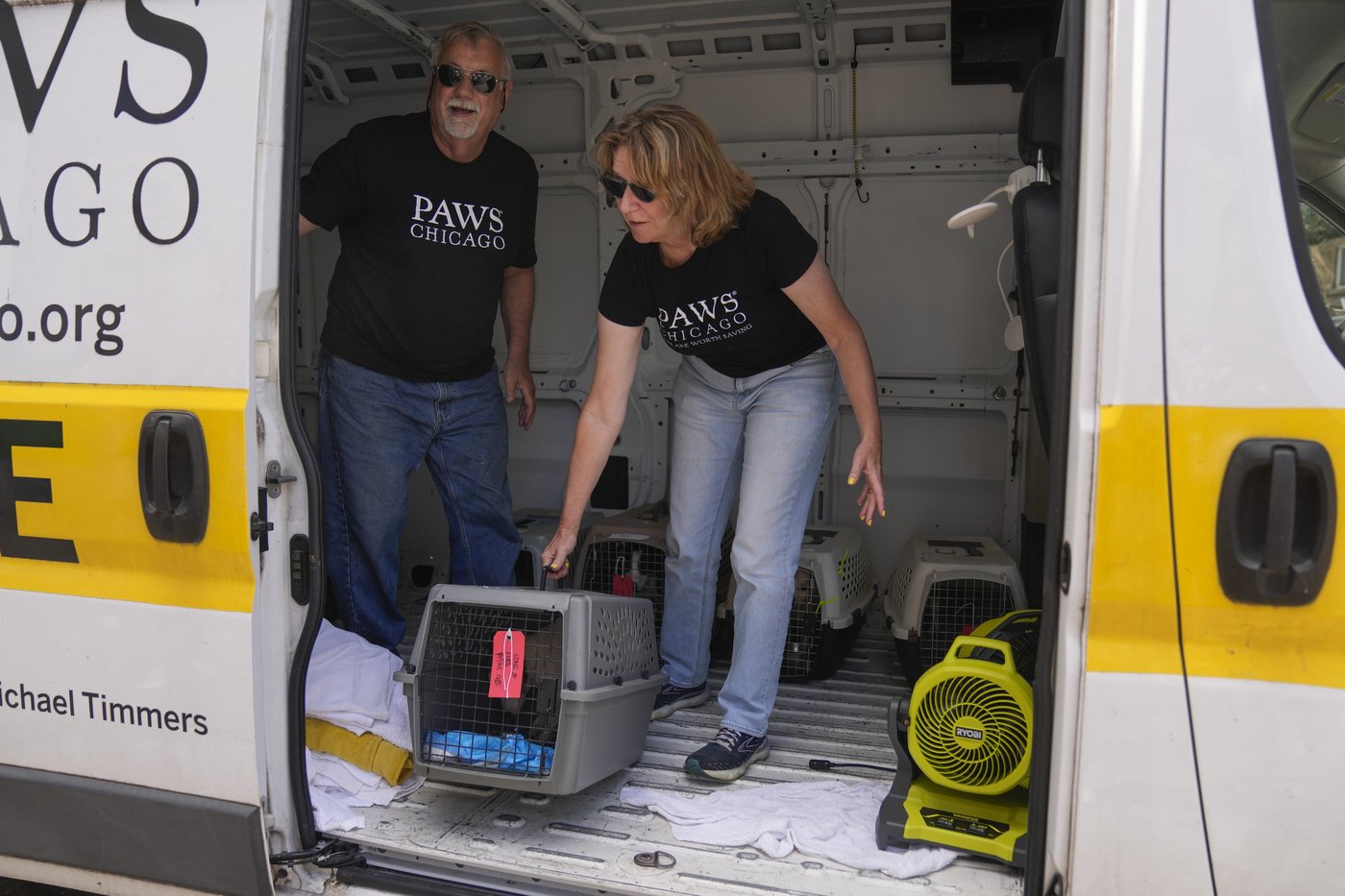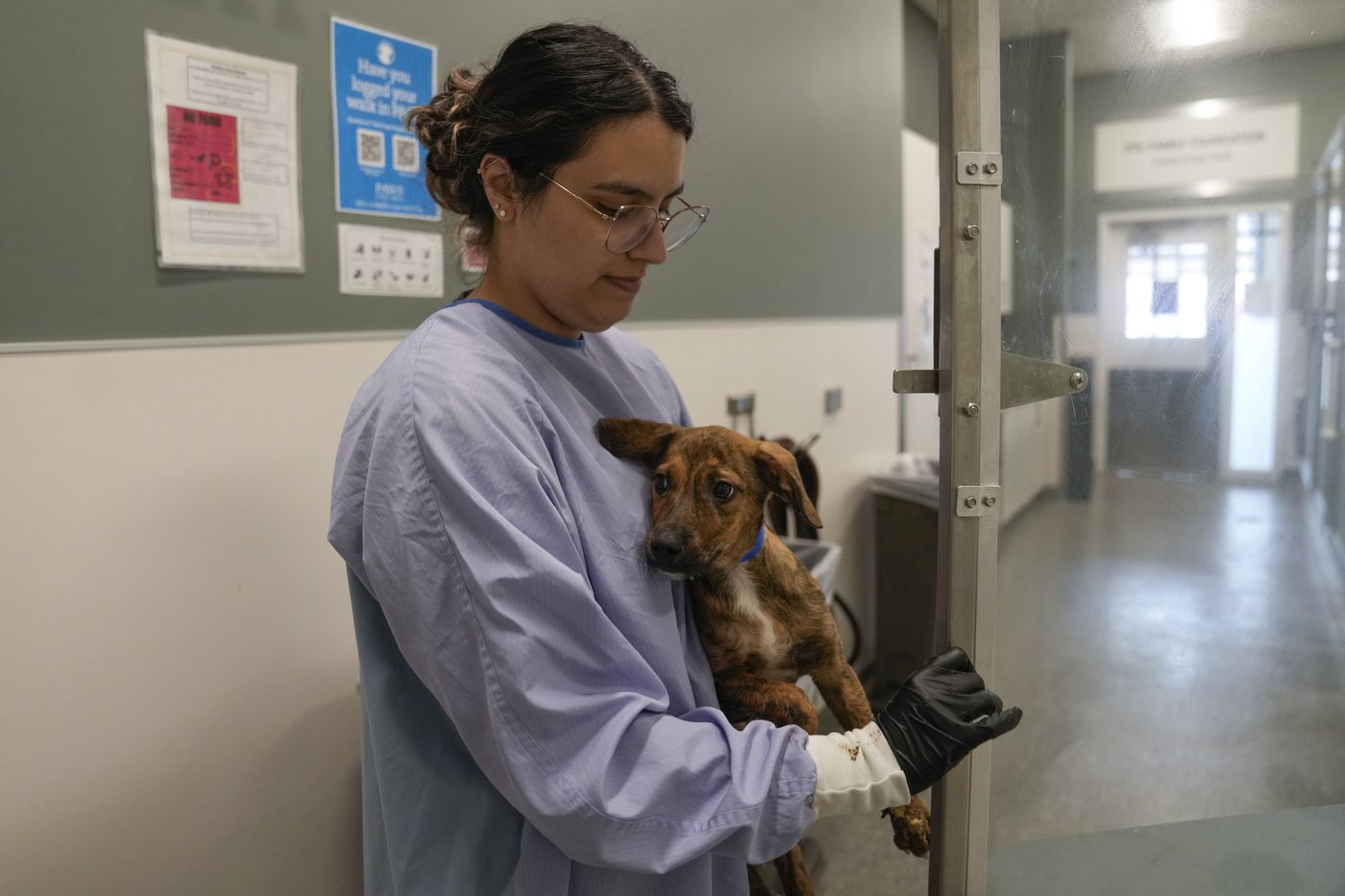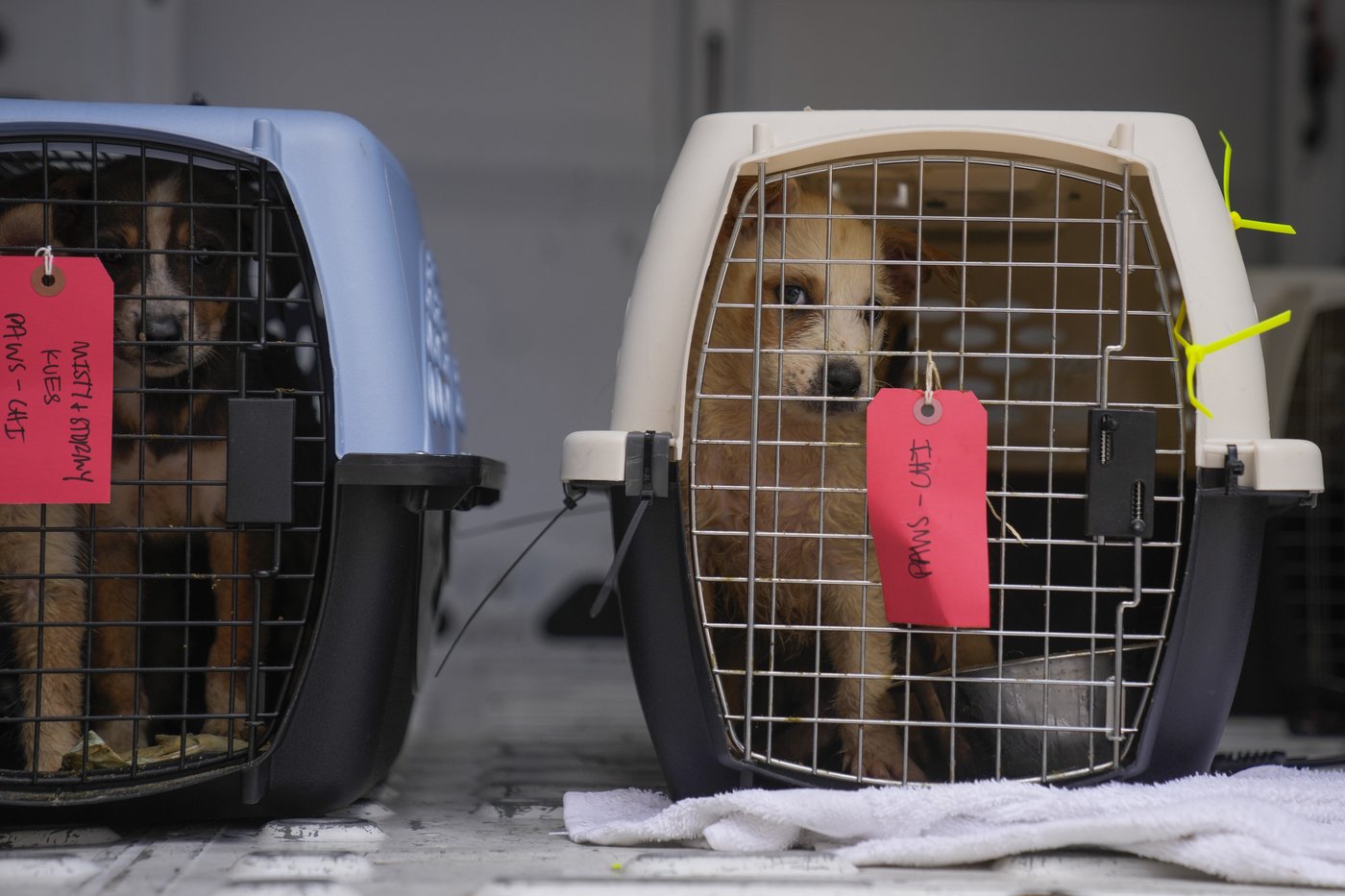Elevate your local knowledge
Sign up for the iNFOnews newsletter today!
Sign up for the iNFOnews newsletter today!
Selecting your primary region ensures you get the stories that matter to you first.

CHICAGO (AP) — Nine puppies from parts of Texas submerged by catastrophic flooding that killed at least 132 people arrived Wednesday at the no-kill shelter PAWS Chicago, joining dozens of puppies that had already arrived.
The critters landed by plane at Waukesha Airport in Wisconsin then made a three-hour journey by van to Chicago.
This is the second batch of pets to arrive in Chicago from Texas. The group Austin Pets Alive!, which has been on the ground in the flood-stricken region since the flooding began, has coordinated the effort with PAWS Chicago.
The animals were in shelters in Texas before the floods began. Organizers say the transfers help those shelters focus on rescuing and reunifying animals separated from their humans by the disaster.
“We’re really happy to be able to support the area by freeing up really needed space in their shelters so they are able to open their shelters to displaced pets,” said Celene Mielcarek, PAWS Chicago head of program operations.

PAWS Chicago’s disaster relief program began in 2005 when the organization took in more than 200 pets in the wake of Hurricane Katrina, according to the shelter. Since then, PAWS has rescued pets from areas impacted by Hurricane Helene last year and rescued 33 dogs from Houston shelters after storms in 2023.
Peter Brown, a PAWS volunteer who drove to collect the dogs in Waukesha, said they were anxious on the trip but settled in quickly. He is hopeful the dogs will be quickly adopted.
“They’ll find good homes here,” he said. “And then some family who lost their dog in the floods will get it back.”
On Monday night, 22 dogs arrived in Chicago from Concho Valley PAWS, a rescue organization in San Angelo, Texas. A total of 31 dogs, ranging from six weeks old to adult dogs, have been relocated to Chicago.
The dogs began receiving medical attention immediately after arriving at PAWS, including being vaccinated, microchipped, and spayed or neutered. They may be ready for adoption and fostering within a few days, according to PAWS.

But for now, they’ll get some well-deserved rest, Mielcarek said.
“They’re all pretty tired,” she said. “They’re all ready for their dinner.”




This site is protected by reCAPTCHA and the Google Privacy Policy and Terms of Service apply.
Want to share your thoughts, add context, or connect with others in your community?
You must be logged in to post a comment.